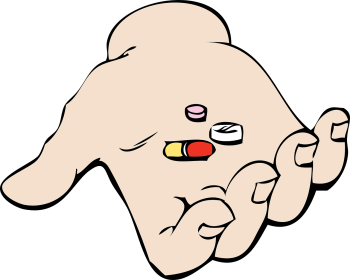How To Help a Friend Suffering From Substance Addiction

If you have a friend or loved one who struggles with substance addiction, there are many things you can do to help a friend to maintain sobriety, come clean off drugs and get their life back on track.
In this article, we will examine some of the most effective things you can do to help a loved one in the process of addiction recovery.
What is substance abuse or substance addiction?
Substance abuse or substance addiction or drug addiction is a disease that affects a person’s brain and behavior and leads to an inability to control the use of a legal or illegal drug or medication.
The National Institute on Drug Abuse (NIDA) defines substance abuse as “a chronic disease characterised by impaired control over substance use, leading to personal and social problems.”
Substance abuse is a problem that can affect anyone, no matter their age, race, sex, or socioeconomic status.
Helping your friend find treatment
There are lots of things you can do to help a friend with an addiction, and many of them don’t require any special skills or knowledge.
For the purpose of recovery, you could first talk to your friend about their addiction to establish whether and how would they like to get help.
Depending on the nature of the addiction, treatment might involve psychotherapy, medication, support groups, or a combination of all of these. Read more about Community Reinforcement and Family Training (CRAFT).
Here are 5 concrete ways to help:
1. Contact a substance abuse professional
Contact a substance use professional, mental health professional to help you help your loved one. Describe your family member’s substance use pattern to see whether the professional would deem it a problem.
Provide details such as type of alcohol or other drugs, how much the person is using, how often they are using, how long the pattern has continued, negative consequences, and the person’s response to discussions or confrontations about substance use.
2. Talk (and listen) to your friend without judgment
Talk about the effect your friend’s drinking or drug use has on whatever the person cares about most, such as career or children.
Your friend may not be concerned about their own situation. But they may care deeply for their children and what the problem may be doing to them.
It can be tough to hear about a friend’s struggles with substances, but it’s important that you listen carefully and without judgment. Simply being there for them can be really helpful.
3. Offer emotional support, your time, and labor
If your friend is using substances to cope with difficult emotions or feelings, offer support and encouragement in working through those feelings.
Talking about their experiences can also be helpful. If you know someone who also struggles with drug abuse, sharing this story can be incredibly helpful for both your friend – it can validate their experience and help them feel less alone.
If they’re unwilling or unable to seek treatment on their own, try convincing them to see a therapist or counsellor.
You can also offer to drive them to appointments or provide funds for treatment.
4. Encourage healthy behaviour
If your friend is abusing substances, encourage them to seek help from professionals or other resources that can help them address their addictions safely and effectively.
Start by encouraging your friend to stay away from the places where they’d normally take drugs (like the pub or a mate’s house), and suggest other activities like exercise, or something else exciting.
Help them find resources and support if they are unable to do it themselves.
5. Improve your communication style
Communication techniques that can help get your conversation on the right foot include:
- Use “I” statements instead of “you” statements (saying “I get sad when you drink” instead of “You never consider what you’re doing to me when you drink” will decrease the blame and confrontation)
- Turning negative statements into positives (replacing “You are such a jerk when you’re high” with “I really enjoy your company when you’re sober” can reduce the likelihood that they’ll get defensive)
- Letting them know that you want the best for them (saying “I’d be glad to take care of the kids while you get help” will give them the opportunity to seek help without worrying about other things)
Types of substance abuse
Although addiction to any type of substance is serious, there are different types of substances that can have different effects on the body and mind.
By understanding the types of substances and how to help a friend with substance use disorder, you can lend a hand in keeping them safe and healthy.
Here are the five most common types of substances abused:
a) Alcohol
Alcohol is the most commonly used drug, and it’s also the most likely to be abused.
In fact, about 1/3 of adults have an alcohol use disorder, which means they’ve had problems with drinking over time.
Drinking too much can lead to health problems like liver damage and heart disease, as well as addiction.
If you see your friend using alcohol excessively or developing other signs of addiction, talk to them about getting help.
b) Cigarettes
Tobacco products are another leading cause of substance abuse. About half of all adults who smoke cigarettes will develop an addiction to tobacco, and tobacco use disorders are the leading cause of preventable death.
c) Stimulants
Stimulant use is another major cause of substance abuse, and around 1/3 of people who use drugs usually develop an addiction to amphetamines or cocaine at some point in their lives.
d) Prescription pills
Opioid drug addiction is on the rise, with heroin and fentanyl being responsible for a dramatic increase in overdose deaths over the past decade.
In 2016, prescription painkillers accounted for nearly three-quarters of all opioid-related opioid overdose deaths.
e) Marijuana or THC
Marijuana use has been steadily rising since the 1960s, but it hasn’t always been limited to youth and teens; approximately half of adults who use it become addicted to marijuana at some point during their lives.
Finally
Substance use disorder is a serious problem that affects millions, and it can be difficult to understand what you can do to help your friend.
From contacting a trained professional to offering support and using the right tone of phrase in your communication.
Substance use disorder is not a character flaw – it is an illness that needs treatment and support.


